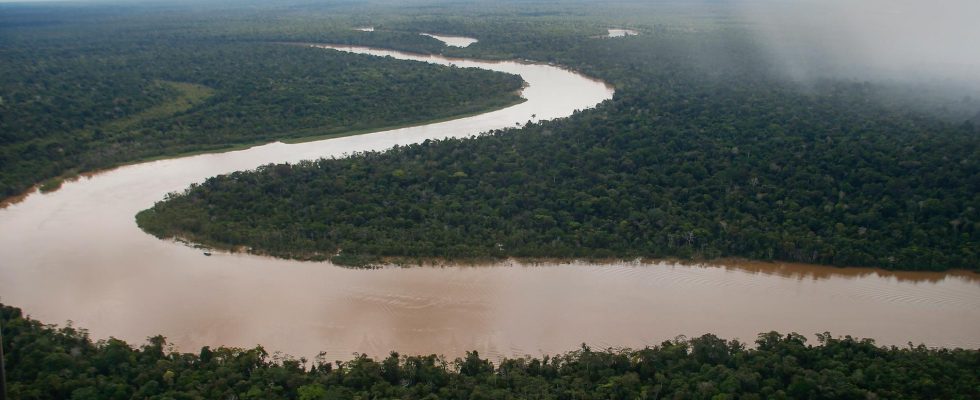full screen
Next
The Itacuaí River flows through the state of Amazonas in Brazil. Every year, the rainforest absorbs approximately 430 million tons of carbon, which corresponds to eight times as much as Sweden’s emissions.
1 / 2Photo: Edmar Barros/AP/TT
Deforestation is decreasing in several countries. It gives hope in the fight to stop logging worldwide, experts believe.
On Tuesday, a two-day meeting begins in Brazil on the future of the rainforest.
– I see a greater political will all over the world to reduce logging, in Indonesia as well as several countries in the Amazon and Africa, says Carlos Nobre, leading climate scientist in Brazil, to the British newspaper The Guardian.
In Brazil, deforestation decreased by 66 percent in July compared to the same month last year.
– In Brazil, there has been a considerable reduction in deforestation. When we will calculate the whole of 2023, there could be a total reduction of 50 percent compared to the year before, which is very good news, says Nobre.
Success example
The same trend is seen in several countries, including Indonesia and Malaysia – the world’s two largest palm oil producers. In Indonesia, deforestation of primeval forest fell by 64 percent between 2020 and 2022 compared to five years earlier, according to data from the organization World Resources Institute. In Malaysia, deforestation decreased by 57 percent during the same period.
– Based on these figures, I think that Indonesia and Malaysia should be considered examples of success. We see that joint forces from authorities, companies and organizations have a positive influence on development, says Liz Goldman, head of research at WRF, to The Guardian.
In the world as a whole, however, harvesting increased by ten percent in 2022 compared to the year before. In Bolivia, the increase was roughly 30 percent. The country is one of the few countries, which has not signed the UN goal to stop deforestation and deforestation by 2030.
According to WRF, the loss of rainforest by 2022 totaled 4.1 million hectares, which is roughly equivalent to the loss of 11 football fields of forest per minute. All these forest losses gave rise to 2.7 gigatonnes of carbon dioxide emissions, equivalent to India’s annual fossil fuel emissions.
International cooperation
On Tuesday, the leaders of the Amazon countries meet in Belém, Brazil, to discuss deforestation for two days. Brazil’s President Lula da Silva, who is hosting, hopes to agree on a joint statement that could be presented at the UN climate conference COP28 in Dubai in November.
– We must jointly demand that the rich countries fulfill their commitments, he said during a meeting in July with Colombian President Gustavo Petro.
Climate scientist Nobre emphasizes the importance of international support to combat deforestation in the Amazon.
– We also have to find funding to maintain the existing forest, says Nobre.
FACTS Amazon rainforest
The Amazon rainforest covers an area of 5.5 million square kilometers – approximately 12 times the area of Sweden – and stretches across nine countries: Brazil, Colombia, Peru, Venezuela, Ecuador, Bolivia, Guyana, Suriname and French Guiana.
The rainforest binds enormous amounts of carbon, approximately 430 million tons of carbon annually, which corresponds to eight times as much as Sweden’s emissions.
Ten percent of the world’s species and about 20 percent of the earth’s fresh water reserves are found in the Amazon.
When the Amazon is eroded or burned, enormous amounts of carbon are released into the atmosphere in the form of the greenhouse gas carbon dioxide, which contributes to global warming.
So far, the rainforest has lost about 13 percent of its original area. The forest is cut down and replaced with cattle breeding and the cultivation of, among other things, soybeans.
On August 8-9, Brazilian President Lula da Silva is hosting a two-day meeting where the leaders of all Amazonian countries meet to discuss the devastation. The meeting is being held in Belém in northern Brazil, whose surroundings have been hit hard by devastation – roughly 40 percent of Brazil’s total deforestation has taken place in the state of Para, where Belém is the capital.
Sources: Naturskyddsföreningen et al.
Read more
